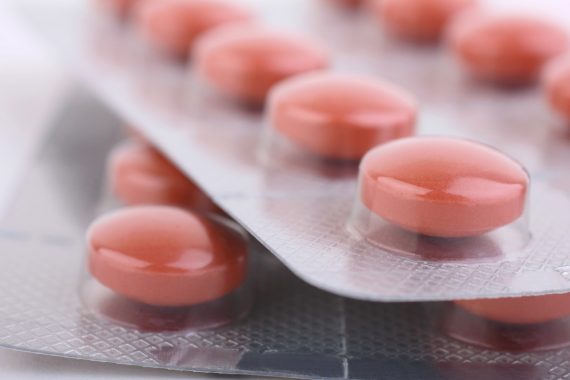Half a million women access low-cost HRT through Government scheme

More than half a million women in England have accessed hormone replacement therapy (HRT) via the low-cost pre-payment certificate (PPC) since its introduction last spring.
The PPC scheme was launched on 1 April 2023, reducing prescription costs for eligible HRT items to £19.30 a year.
Calculations from the Department of Health and Social Care estimate that the initiative – which is part of England’s Women’s Health Strategy – has produced savings for patients of more than £11m since its launch.
The list of available treatments includes patches, tablets and topical preparations, and patients can use the HRT PPC as many times as they need to throughout the year.
Maria Caulfield, minister for women’s health strategy, said: ‘Many women often need to try a few different types of HRT to get the right medication that works for them.
‘By reducing the price of HRT to under £20 for a year’s supply, we’ve made it more equitable for women to go on living their normal lives.’
Professor Dame Lesley Regan, the women’s health ambassador for England, said the scheme was ‘a fantastic way’ of improving access to HRT.
‘When we created this strategy, we made it clear it would improve women’s health outcomes [and] 500,000 women accessing affordable HRT is a clear, tangible result of just that,’ she added.
Health and social care secretary Victoria Atkins also welcomed the ‘huge milestone’.
She said: ‘Better access to HRT will improve the lives of millions and gives women the freedom to take control of their symptoms.’
They were prescribed to a total of 2.3 million identified patients, with a 29% increase from 2021/22.
The figures were released in October by the NHS Business Services Authority (NHSBSA) and include all drugs that are covered by the HRT Prescription Pre-payment Certificate (PPC) and were prescribed in England and dispensed in the community in England, Scotland, Wales, Isle of Man or the Channel Islands.
While the majority of patients prescribed HRT are aged under 60, meaning that they may be likely to pay prescription fees, the NHSBSA said that since the HRT PPC was introduced in April 2023, there has been a reduction in the proportion of HRT items that patients pay for.
Between April 2023 and June 2023, 80.9% of HRT items were exempt from prescription charges, compared to 70% of items in 2022/22.
The analysis suggested patients in less deprived areas were more likely to be able to access HRT – a pattern that the NHSBSA said had ‘remained consistent’ since 2015/16.
In 2022/23, there were an estimated 662,000 patients prescribed HRT medicines in the least deprived areas in England – more than double the 289,000 identified patients that received prescribing from in the more deprived areas.
The integrated care board (ICB) with the highest proportion of patients being prescribed HRT was NHS Gloucestershire ICB, with an estimated 62 patients per 1,000 population being prescribed HRT.
Meanwhile, the lowest proportion of patients being prescribed HRT was NHS North East London ICB, with just 17 patients per 1,000 population being prescribed HRT.
Utrogestan 100mg capsules were the most prescribed HRT item in 2022/23, with 935,000 total items being prescribed and dispensed – more than double the 458,000 items in 2021/22.
The NHSBSA also released the 10 most prescribed HRT items last year:
BNF Presentation Name Unit of Measure Total Quantity Total Items Utrogestan 100mg capsules capsule 67,300,000 935,000 Estradiol 0.06% gel (750microgram per actuation) gram 139,000,000 829,000 Evorel Conti patches patch 15,900,000 751,000 Progesterone micronised 100mg capsules capsule 49,900,000 691,000 Vagifem 10microgram vaginal tablets pessary 15,000,000 631,000 Estradiol 10microgram pessaries pessary 13,900,000 593,000 Oestrogel Pump-Pack 0.06% gel gram 94,700,000 586,000 Estriol 0.1% cream gram 9,970,000 480,000 Evorel 50 patches patch 9,590,000 473,000 Evorel Sequi patches patch 9,480,000 451,0
Draft NICE guidance out for consultation includes new information on individualised risks of HRT that GPs should discuss with patients. It also recommends that cognitive behaviour therapy (CBT) should be offered as a treatment option for menopause symptoms.
A version of this article was first published by Pulse’s sister title The Pharmacist
Pulse July survey
Take our July 2025 survey to potentially win £1.000 worth of tokens

Visit Pulse Reference for details on 140 symptoms, including easily searchable symptoms and categories, offering you a free platform to check symptoms and receive potential diagnoses during consultations.











